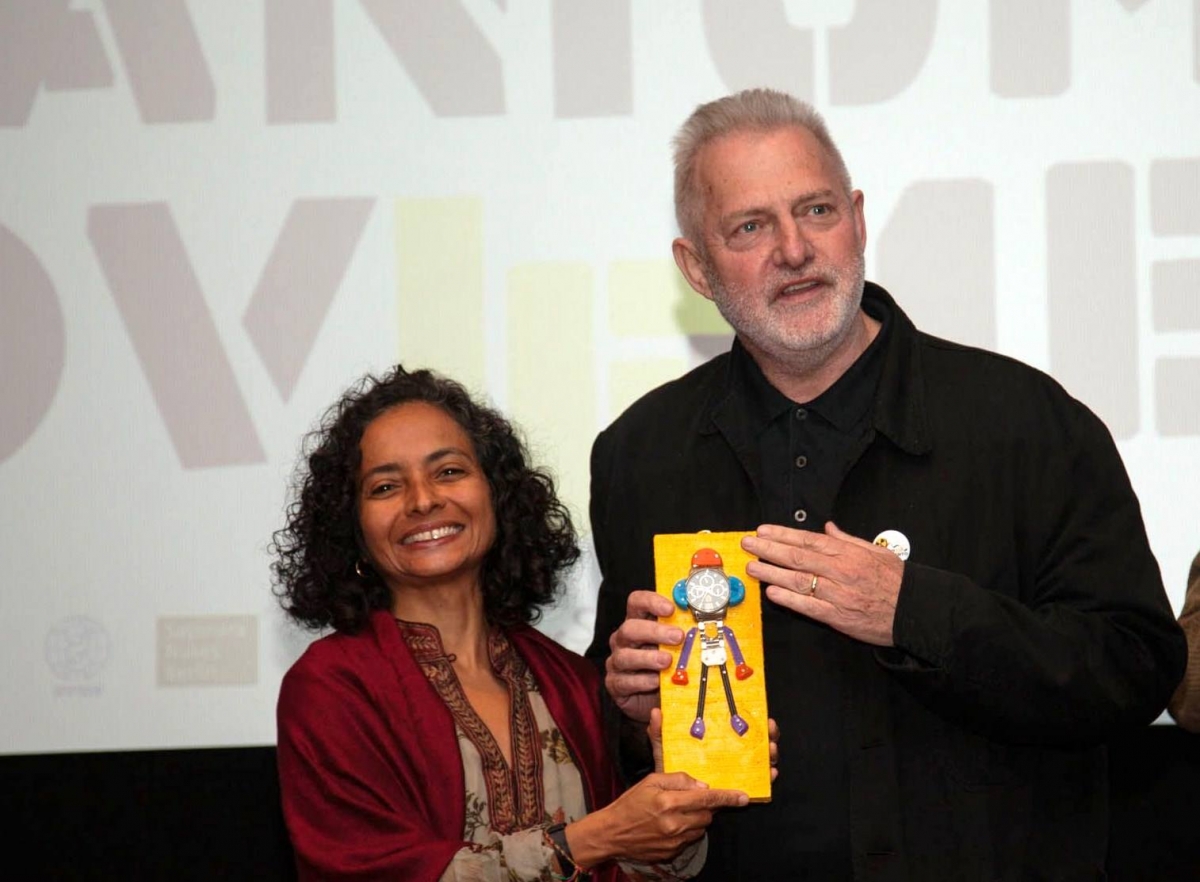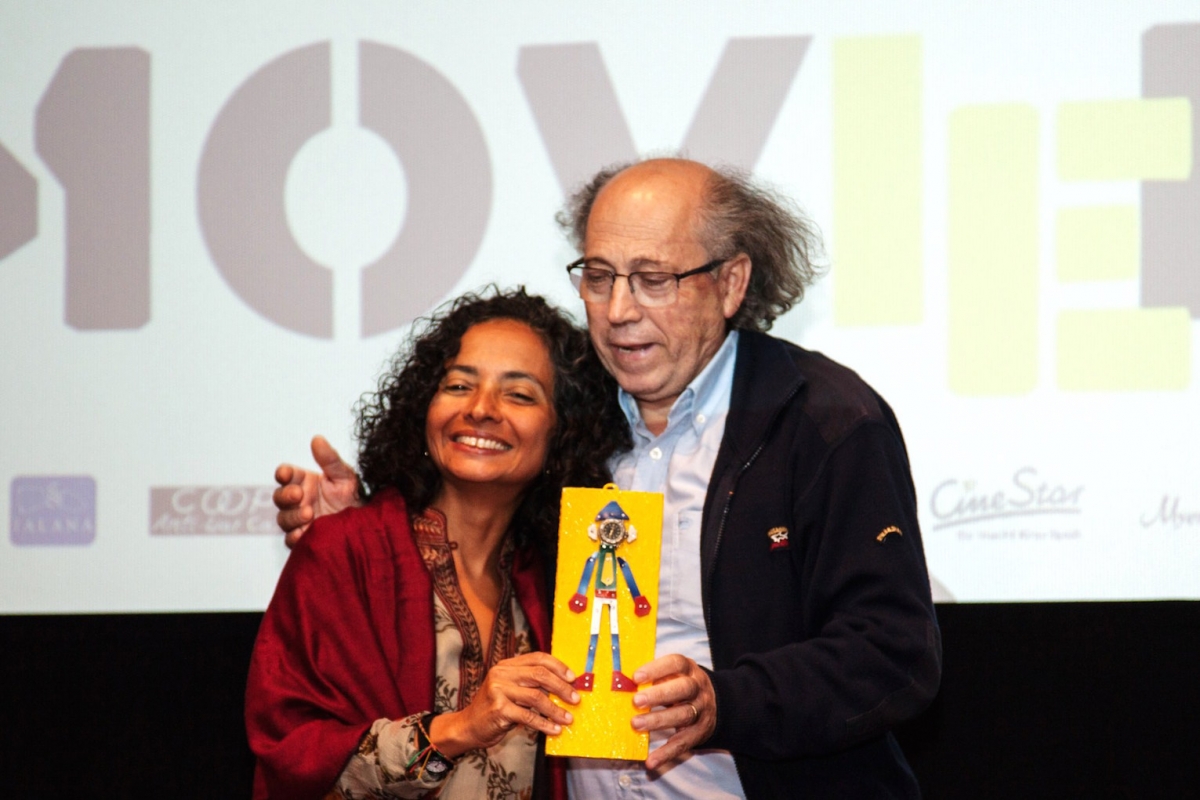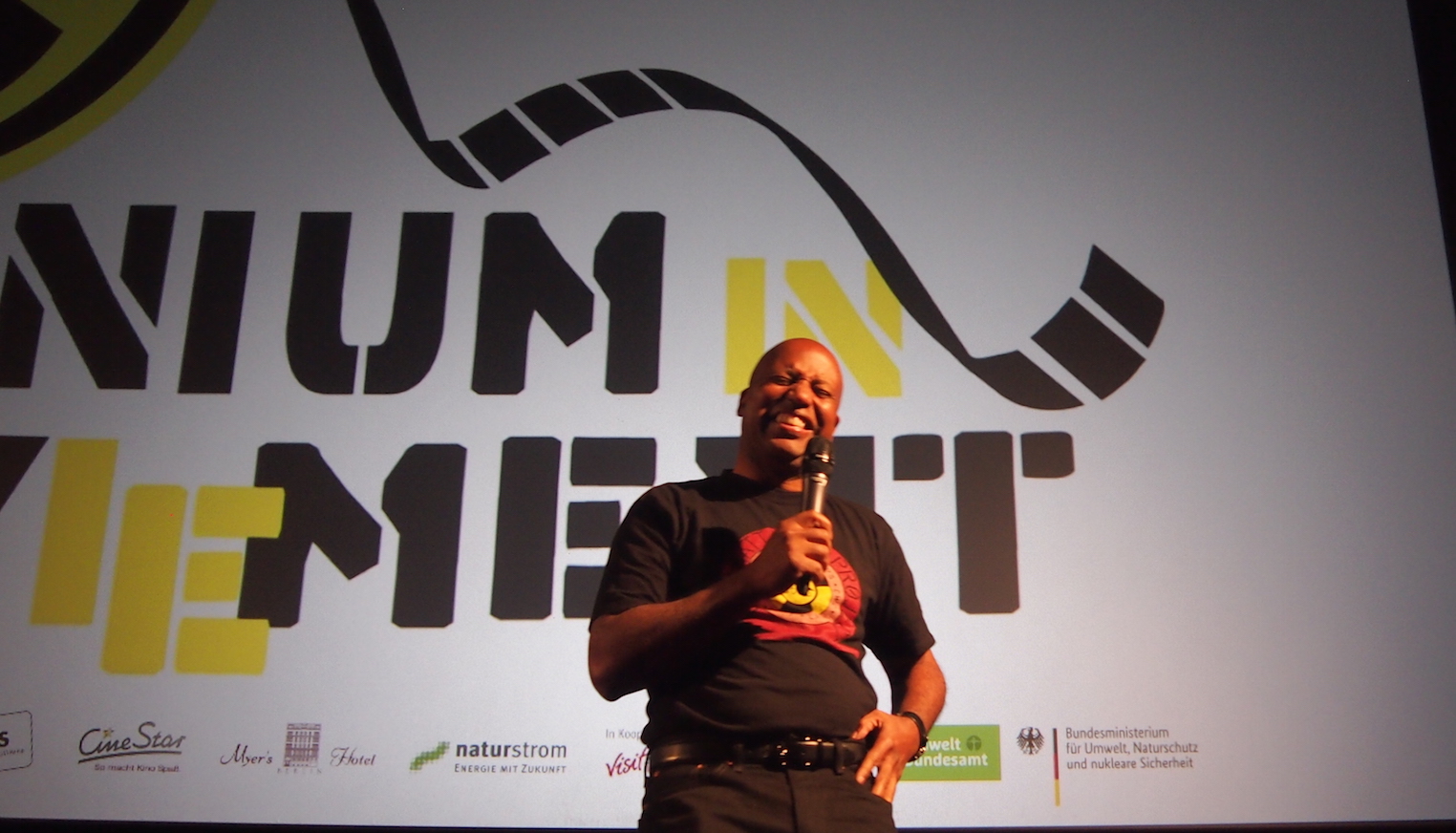
International Uranium Film Festival in Berlin 2018 honors filmmakers and personalities that reveal history and risks of the Atomic Age.
The 7th International Film Festival in Berlin ended in the Zeiss-Großplanetarium with filmmakers and special guests from USA, Scotland, England, Denmark, Japan, Portugal, the Marshall Islands and Germany. From October 9th to October 14th, the festival screened 22 films from ten countries. Six films received the festival's trophy, the so called "Yellow Einstein". In addition an honorary award was given to António Minhoto, a former miner of the uranium mines of Urgeiriça in Portugal. António Minhoto fights for three decades for compensation for the uranium miners from Urgeiriça and their families, and for the clean-up of the abandoned mines and contaminated areas in Portugal," explains Márcia Gomes de Oliveira, director of the in the world unique film festival about the atomic age that was created in 2010 in Rio de Janeiro. After Berlin, the Uranium Film Festival will travel this year to the American Southwest and will take place from November 29 to December 12 in Window Rock (Navajo Nation Museum), Flagstaff, Grants, Albuquerque, Santa Fe and Tuscon.
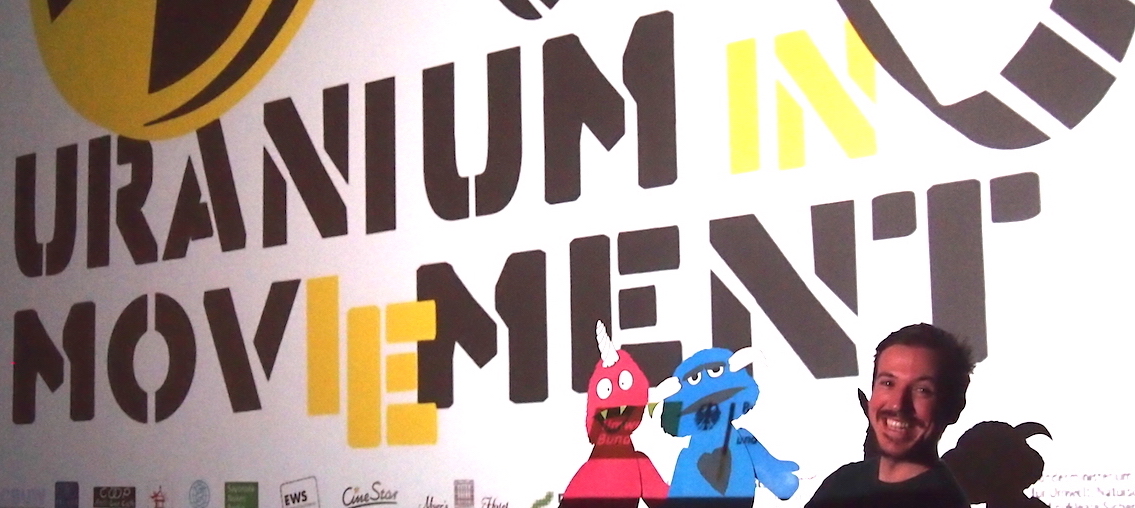
The Berlin International Uranium Film Festival Winners 2018
BEST SHORT DOCUMENTARY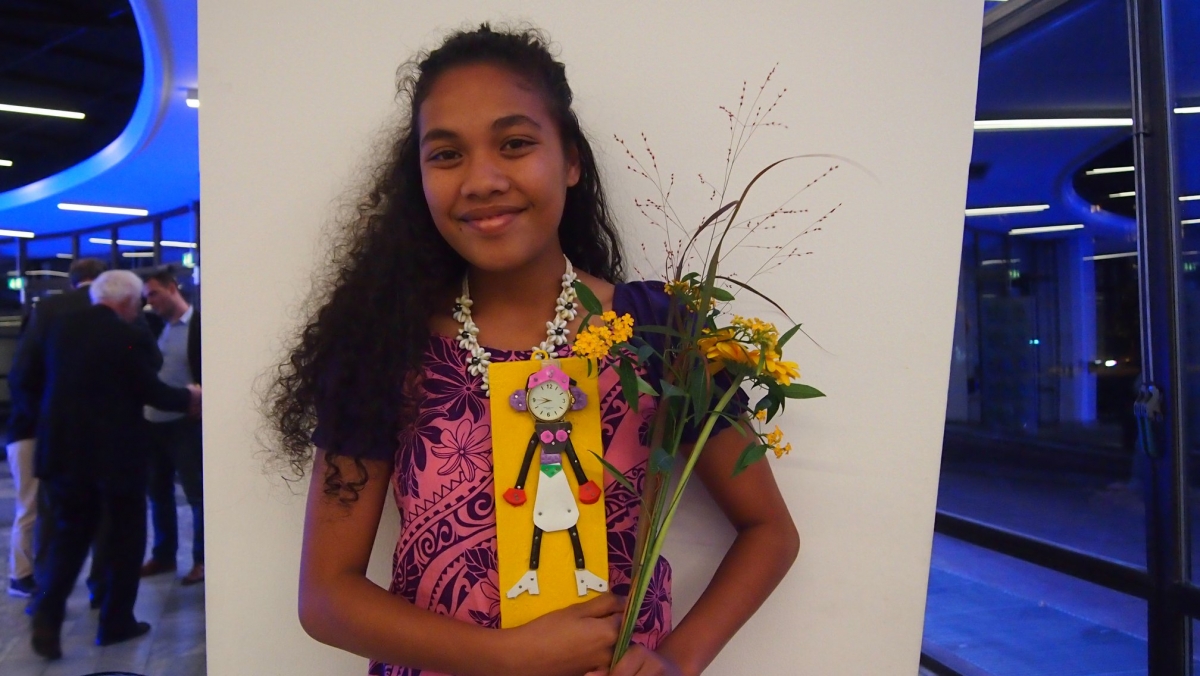
ANOINTED
Marshall Islands, 2018, Directors Dan Lin & Kathy Jetnil-Kijiner, poem video, English, 6 min - A powerful poem video about the legacy of the US atomic bomb tests on the Marshall Islands and the Runit dome nuclear waste site in the Enewetak Atoll. https://www.kathyjetnilkijiner.com
"Photographer and filmmaker Dan Lin and poet Kathy Jetnil-Kijiner are masters at uniting nature, poetry and atomic bomb tests. As eloquent as the poem, so poignant is the cinematic footage by Dan Lin“, says Thomas Zandegiacomo Del Bel, film curator and fillm judge for the Uranium Film Festival. Representing Kathy Jetnil-Kijiner, the 16-year-old Berlin Philippo from the Marshall Islands received the award in Berlin.
BEST ANIMATION
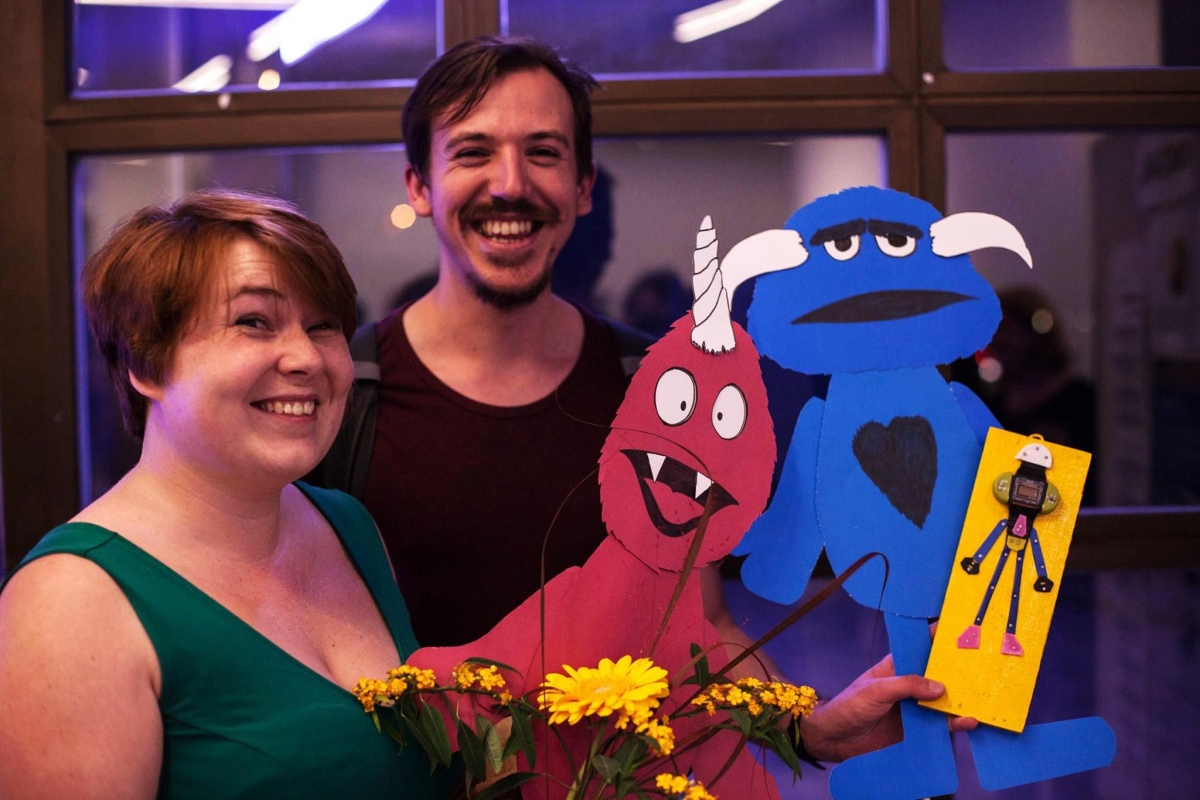 Freddy and Fuzmo Fix The World
Freddy and Fuzmo Fix The World
UK, 2018, Directors & Producers: Christopher Murray, Luke Biddiscombe & Mikel Iriarte, further Producers Matt Rose, Laura Johnson, Muppet Animation, 27 minutes, English - Nineteen months after being sent to earth to fix the world’s problems, Fuzmo, an omnipotent alien-being jaded by the corporate machine, has lost all motivation and now lives in a gluttonous and lethargic lifestyle, leeching off his good-natured flatmate Freddy. In an effort to be productive, twenty-something Freddy tries to persuade Fuzmo into creating world peace. The intervention of new house guest Grumble divides the trio, who find themselves locked in a nuclear arms race, with the fate of Big City hanging in the balance. https://www.facebook.com/freddyandfuzmo/ - Trailer: https://www.youtube.com/watch?v=RtItRNAH8Aw
"Freddy and Fuzmo Fix the World is simply a well-made, laughter-stimulating Muppet show on nuclear war. Documentary films about nuclear power and it's consequences are sometimes depressing. For that it is just as important to have atomic films that make us laugh. And that's what Mikel Iriarte and Laura Johnson and their film team did masterfully“, said festival director Norbert G. Suchanek.
Best Archival Footage Documentary
ONE HUNDRED YEARS OF URGEIRIÇA - CEM ANOS DE URGEIRIÇA
UK/Portugal, 2016, Director Ramsay Cameron, Producer Molitor Productions, documentary, English/Portuguese, German subtitles 52 min - The film tells the story of the 100 year history of the Minas da Urgeiriça in Northern Portugal. The mine was one of the earliest uranium mines and was linked directly to Marie Curie, during the Second World War the British and American governments recognized its strategic importance and invested heavily in it to provide nuclear fuel for the Cold War. Later the mine was returned to Portuguese ownership and the dictator Salazar dreamt of creating a Portuguese nuclear industry, eventually it was the source of the uranium that Saddam Hussein procured for his attempt to build a nuclear reactor. https://vimeo.com/170159651
"Skillfully, Ramsay Cameron uses unique archive footage and eyewitness interviews to reveal the important involvement of Urgeiriça in the Manhattan program. It is an excellent film to open our eyes on the history of this uranium mine in north-central Portugal and on its participation in the construction of the first US and UK atomic bombs", says Márcia Gomes de Oliveira, co-founder and director of the Uranium Film Festival.
Honorary Award
António Minhoto, Portugal
António Minhoto was born in the year 1952 in Portugal. He is a former worker of the Urgeiriça uranium mine and created later the environmental association (AZU) and the association of former mine workers of Urgeiriça (ATMU). His mission is to fight for the rights of those who worked in the uranium mine and for the clean-up of the uranium mining legacy in Portugal.
Best Art Documentation 2018 - Jury Award
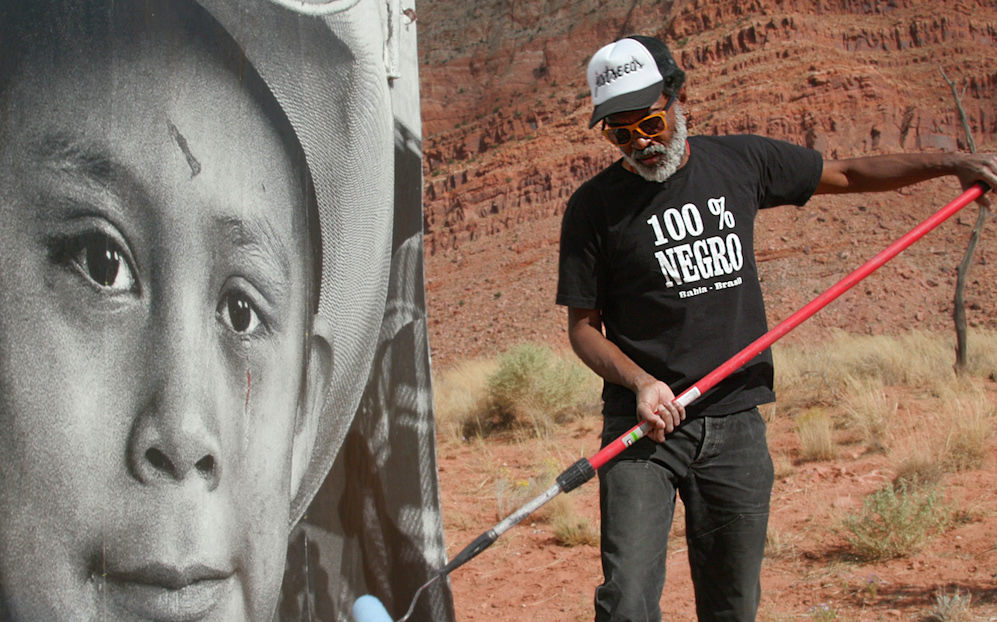
Dignity at a Monumental Scale
USA, 2018, Director & Producer Kelly Whalen, Art-documentary, English, 8 min - When images of everyday Navajo life began appearing at a monumental scale on abandoned buildings, roadside stands and water towers across the Four Corners region, it was a surprise for many in the community to discover it was the work of Chip Thomas (aka Jetsonorama), a long-time resident known by many as a healer of another kind. https://vimeo.com/261408010
"I understand this movie as a declaration of love to the Navajo people.The film is also a call against forgetting and gives hope for a fairer future" says Timo Jacobs (actor, director and producer who lives and works in Berlin) for the Uranium Film Festival. (Award will be given in Window Rock)
Best Feature Documentary 2018 - Berlin Audience Award
Atomic Homefront
USA, 2017, Director & Producer: Rebecca Cammisa, Producer James B. Freydberg & Larissa Bills, 96 min, Documentary, English, 96 min - The City of St. Louis has a little known nuclear past as a uranium-processing center for the Atomic bomb. Government and corporate negligence led to the dumping of Manhattan Project uranium, thorium, and radium, thus contaminating North St. Louis suburbs, specifically in two communities: those nestled along Coldwater Creek – and in Bridgeton, Missouri adjacent to the West Lake-Bridgeton landfill. Another tragic and bizarre occurrence has been unfolding in Bridgeton, Missouri. In 1973, approximately 47,000 tons of the same legacy radioactive waste was moved from Latty Avenue and was illegally dumped into a neighborhood landfill named West Lake. This landfill became an EPA Superfund site in 1990. For the last seven years, an uncontrolled, subsurface fire has been moving towards an area where the radioactive waste was buried. Atomic Homefront is a case study of how citizens are confronting state and federal agencies for the truth about the extent of the contamination and are fighting to keep their families safe. Trailer https://www.atomichomefront.film
"The audience in Berlin, including filmmakers and nuclear experts and physicians were overwhelmed by Atomic Homefront and by the brave mothers from Saint Louis who created Just Moms STL", says festival director Norbert G. Suchanek. (Award will be given in Window Rock)
Young Talent Documentary Film Award
URANIUM DERBY
US, 2017, Director Brittany Prater, documentary, English, 83 min - A young woman’s investigation into her hometown’s secret involvement in the Manhattan Project triggers a chain reaction of encounters through which it becomes clear that the topic of nuclear waste has been more successfully buried than the waste itself. Uranium Derby portrays the manner in which Superfund site cleanup is often mishandled in the U.S., and informs the viewer about how toxic waste can spread, and why waste-site cleanup is often prolonged or avoided altogether. Because private companies contracted to clean up waste sites tend to hold considerable political leverage, they are able to devise strategies that greatly extend cleanup schedules, thus ensuring the longest possible inflow of government funds. „A filmmaker discovers her hometown was secretly involved in the Manhattan Project. Her investigation into this history triggers a chain reaction of encounters through which it becomes clear that the topic of nuclear waste has been more successfully buried than the waste itself.“ http://uraniumderby.com/ (Award will be given in Window Rock)
"The audience enjoyed Uranium Derby. It is a well done film, well researched and raised a lot of information to view that wasn’t previously in the public knowledge", Uranium Film Festival Jury
SPECIAL RECOGNITIONS
USA, 2017, Director Justin Clifton, Documentary, English, 10 min, German subtitles - The Havasupai Tribe depends on the blue-green waters that emerge in the Grand Canyon for drinking water. But now, uranium mining on the canyon’s rims threatens the tribe’s existence and its way of life. A 20-year ban on new uranium mining claims around the Grand Canyon is at risk of being overturned by the Trump administration. The Grand Canyon is an irreplaceable natural treasure that draws over 5.5 million visitors to the park each year. Yet, irresponsibly operated uranium mines located on federal public land just miles from the North and South Rims threaten to permanently pollute the Grand Canyon landscape and the greater Colorado River. Film: https://vimeo.com/241576331 - https://www.grandcanyontrust.org/too-precious-mine
„Justin's short film makes it clear: The Grand Canyon is the last place on Earth we should mine uranium - not today, not in 20 years, never", Uranium Film Festival Jury
USA. 2015, Director Tony West, Documentary, English,108 min - "World War II's Manhattan Project required the refinement of massive amounts of uranium, and St. Louis-based Mallinckrodt Chemical Works took on the job. As a result, the chemical company's employees would become some of the most contaminated nuclear workers in history. This documentary explores the legacy that St. Louis is still coping with, from workers who became ill - to the challenges of dealing with the fallout of creating some of the world's first nuclear waste.The story is not unique to St. Louis, as more than 300 facilities across America would become part of the race to build the bomb, and be forced to deal with many of the same issues. A detailed look into what some of the men and women went through inside these plants, and how decisions made in the past affect us all today. http://www.thesafesideofthefence.com
"Well done!"
UK/Denmark, 2017, Directors Joshua Portway and Lise Autogena, Producer Lise Autogena, Documentary, Danish and Greenlandic with English subtitles, 30 min
The film is a work in-progress, forming the first part of the artists’ long-term investigation into the conflicts facing the small, mostly indigenous, community of Narsaq in southern Greenland. Narsaq is located next to the pristine Kvanefjeld mountain; site of one of the richest rare earth mineral resources deposits in the world, and one of the largest sources of uranium. Greenland is a former colony of Denmark, which is now recognised as an “autonomous administrative division” of Denmark, supported economically by the Danish state. Many people see exploitation of mineral deposits as the only viable route to full independence. For generations the farming near Kvanefjeld has been Greenland’s only agricultural industry. This way of life may soon be threatened, as Greenland considers an open pit mine proposed by Greenland Minerals and Energy, an Australian company. The mine would be the fifth-largest uranium mine and second-biggest rare earth extraction operation in the world. Autogena and Portway’s film portrays a community divided on the issue of uranium mining. It explores the difficult decisions and trade-offs faced by a culture seeking to escape a colonial past and define its own identity in a globalised world. Trailer: https://vimeo.com/214697146
"An important film to stimulate the discussion about uranium mining in Greenland."
UNSILENCED: Anti-Nuclear Movement in Turkey 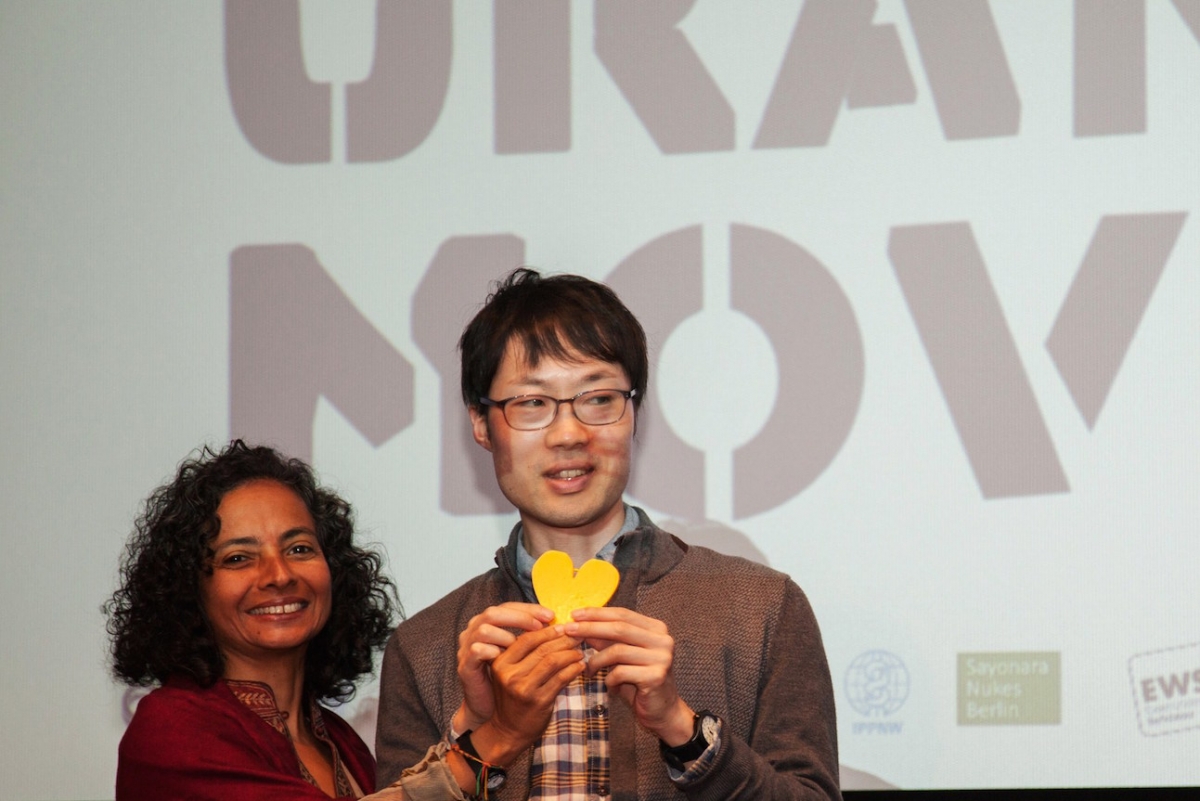
Turkey/Japan, 2017, Director: Takuya MORIYAMA, 37 minutes, Original Language: Turkish Subtitled Language: English - In April 2018, Turkey started construction of its first nuclear power plant. Further nuclear power plants are being planned. But even in Turkey there is an anti-nuclear power movement that can not be shut up. The anti-nuclear movement continues for 40 years in Turkey. Because Turkey was affected by the Chernobyl nuclear accident in 1986, and for that people in Turkey are aware of the risks of nuclear power. Now, six years after the Fukushima accident, a young Japanese filmmaker analyzed the anti-nuclear movement in Turkey.
Special recognition to Takuya MORIYAMA: „His refreshing documentary entertainingly shows us a side of Turkey that was previously unknown to most people in Germany and around the world. A Turkish anti-nuclear movement without a veil, which does not keep silence“, says festival director Norbert. G. Suchanek
Serbia, 2018, directed by Miodrag Miljkovic, documentary, 22 min, English - Depleted uranium (DU) is obtained by processing mined uranium ore. Most of the radioactive isotopes extracted from the ore are used for nuclear weapons or atomic power plants. What remains is a less radioactive isotopeto 238, depleted uranium. It is almost two times denser than lead and flammable at impact, which makes it extremely effective when penetrating the armour.Miltary experts have in 1970s started to embed DU into the nozzles of conventional nuclear projectiles, granades and bullets. Every projectile contains about 350 grams of DU and that part of the projectile is called a “penetrator”. When a uranium “penetrator” hits a tank, the “penetrator” and the armour partially soften under the pressure. According to Pentagon’s literal description, a depleted uranium projectile goes through a tank like “a hot knife through butter”. But only one particle of DU in the lymph glands could destroy the whole immune system, says doctor Rodger Coghill.
"The impressive short documentary film sheds light on the damage caused by the NATO bombing of former Yugoslavia with depleted uranium ammunition. While the military is well aware of the dangers of this weapon, civilian casualties are often inadequately helped. Depleted uranium weapons must be forbidden", says Professor Manfred Mohr, spokesman of ICBUW Germany.
About the Uranium Film Festival Award "Yellow Einstein.
Festival Contact
International Uranium Film Festival www.uraniumfilmfestival.org info@uraniumfilmfestival.org Rua Monte Alegre 356 / 301 Santa Teresa / Rio de Janeiro / RJ CEP 20240-195 / Brasil (00 55 21) 2507 6704; 97207 6704 Program Berlin 2018The independent International Uranium Film Festival needs your support and donation. Only with the help of concerned people Uranium Film Festival screenings are possible. We welcome any donation!
DONATE NOW with PayPal
Donation via Bank transfer to Name: Norbert Suchanek / Uranium Film Festival Bank: GLS Gemeinschaftsbank Bochum / GermanyBIC: GENODEM1GLS
IBAN: DE80 4306 0967 7007 8348 00 Sponsorship Opportunities Please contact us for general information: info@uraniumfilmfestival.org

